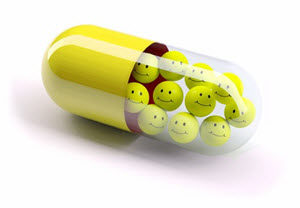 Ketamine is worthy of discussion in our profession in that it is being touted as possessing rather fast-acting antidepressant properties, with many clinicians, predominately psychiatrists, offering ketamine infusion therapy as a treatment alternative when other more traditional modalities have failed to produce desirable outcomes, or for that matter, any positive outcomes at all. Several internet threads that I’ve come across describe ketamine as a miracle, particularly in treatment-resistant cases, as just mentioned.
Ketamine is worthy of discussion in our profession in that it is being touted as possessing rather fast-acting antidepressant properties, with many clinicians, predominately psychiatrists, offering ketamine infusion therapy as a treatment alternative when other more traditional modalities have failed to produce desirable outcomes, or for that matter, any positive outcomes at all. Several internet threads that I’ve come across describe ketamine as a miracle, particularly in treatment-resistant cases, as just mentioned.- We’re obviously not talking about a pill here – although ketamine can be compounded into oral forms of administration. We’re talking about IV equipment, not a comfortable position for psychiatrists. This means placing oneself into the physical medicine world accompanied by its attendant risks. Ketamine has a rare side effect of initiating an acute hypertensive crisis, which means being equipped to handle this as if in a more traditional medical office setting replete with monitoring vitals, oxygen and the proverbial crash cart. This strains the boundaries of more traditional psychiatric practice.
- Because ketamine is absolutely not FDA approved for depression and is therefore considered an off-label procedure, free market forces enter the picture. Upfront fees can run from $500-$750 per infusion, and although I fully understand the feelings of desperation associated with wanting to try anything to obtain relief and the desire to “sell the farm” if necessary to do so, few people likely have pockets deep enough to get beyond a few treatments. This is Saks and Neiman Marcus status treatment, by no means accessible to the economically disadvantaged, at least not yet.
- It’s quite unclear how long ketamine treatment should continue. Regarding the trials discussed above — which were conducted over a 2-week period and encompassed a total of six infusions, relapse rates averaged 72 percent in the month subsequent to this initial treatment sequence. So what about maintenance? Ketamine’s effects are short-lived, so does this mean treatment long-term? Forever? If one has reached the point where ketamine is entertained as an option, they’d best be aware that there are no pills which successfully prolong the ketamine antidepressant effect.
- The rave culture often described ketamine as dissociative, producing a “free floating” or hallucinatory sensation — which happens to be a side effect of ketamine. So is it possible that dissociation is either a predictor or even possibly responsible for its antidepressant effect? What then? Will the goal be to induce a psychedelic experience to maximize ketamine’s benefits? Bottom line: Finding the right, “best” dose is critical.
- Ketamine will be targeted for diversion and will join a long list of other players such as opiates and psychostimulants which are increasingly sought for non-therapeutic reasons.
Conclusion: Ketamine is demonstrating a propensity for rapidly alleviating depression, but effects are short-lived. Ketamine candidates should be clearly informed of this limitation at the outset of treatment. And they should be made aware that the drug is not an antidepressant and that dosing guidelines — initial and maintenance — are not at all clearly established.
Attribution Statement:
Joe Wegmann is a licensed pharmacist & clinical social worker has presented psychopharmacology seminars to over 10,000 healthcare professionals in 46 states, and maintains an active psychotherapy practice specializing in the treatment of depression and anxiety. He is the author of Psychopharmacology: Straight Talk on Mental Health Medications, published by PESI, Inc.
To learn more about Joe’s programs, visit the Programs section of this website or contribute a question for Joe to answer in a future article: joe@thepharmatherapist.com.